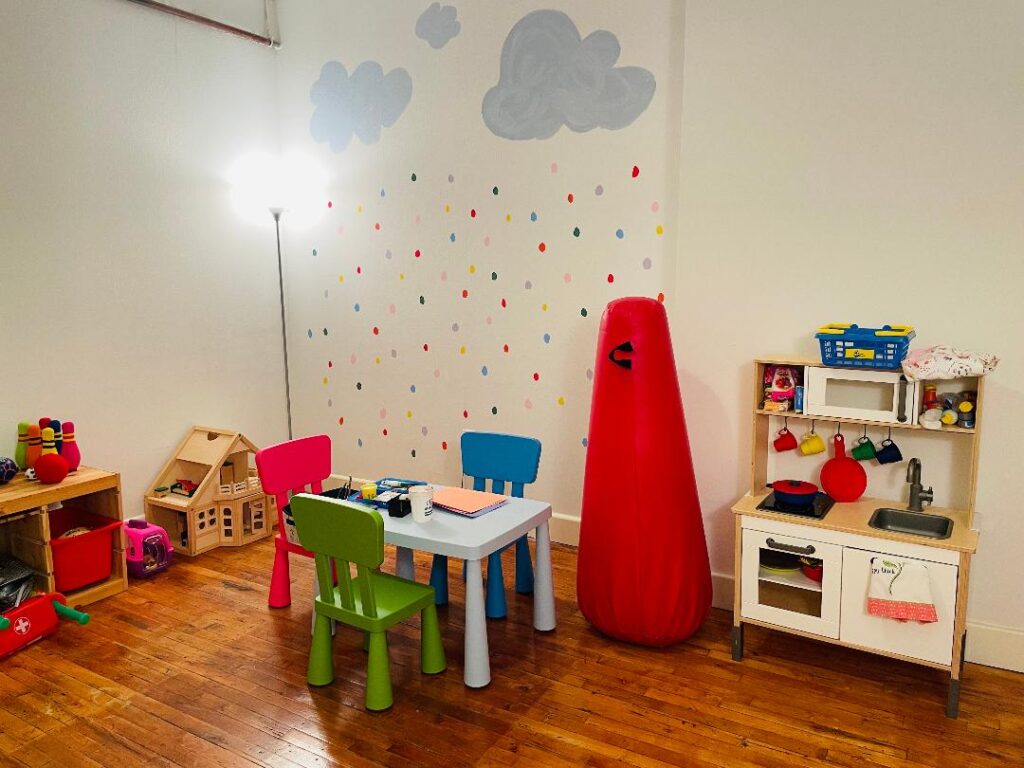
Mental Health & Children is A Crisis
As children finish school for the year and spend the holidays at home, parents might notice unusually bad behavior in their kids.
Our US Surgeon General issued a rare public health advisory last week, prompting the media to cover his statement nationally.
Dr. Vivek Murthy said, “Our kids are struggling and have been for a while and we can no longer wait to address this issue.”
Over 140,000 children in America have lost a parent, grandparent, or caregiver last year due to Covid. Missing their classmates for 18 months during “Zoom” School has also contributed to this depression, and Instagram has made young teenage girls more concerned than ever about their looks, prompting self-harm through severe dieting and other negative actions.
In fact, it’s so harmful for teens, making girls feel bad about themselves due to the “unattainable perfection” and beauty displayed on the platform that Instagram’s CEO was subpoenaed to testify in Congress about what the company is doing to reverse these negative effects on young and pre-teens.
Depression and Suicide Rates
ER visits are up 51% since 2019 for adolescent girls who are depressed or contemplating suicide. Missing school friends, losing relatives to illness, staying home when children want to go out and play have all created a problem parents can’t fix overnight.
Amera Sergie is a Licensed Professional Counselor and knows all too well that things are not good right now for children’s mental health in America. As a counselor in private practice for 15 years, she had seen the trend in children and adolescents and knows there is a problem. She feels a change is needed, and one way to help is to listen carefully to your children.
Born and raised in Lexington, Kentucky, she studied abroad and is a graduate of Lebanese American University in Beirut, where she received a double degree in Business Marketing and Management, then went on to graduate school at SMU to obtain a master’s in clinical counselling and psychology.
She says she loved SMU and Dallas and decided to stay.
Signs of Depression in Children
The signs or behaviors of a child that might have depression are easy to spot if you are paying attention. Amera says, “Depression is not occasional sadness or frustration and irritability. If a child displays changes in their behavior and signs of depression for two weeks or more, depression may be the cause.”
In her experience, and in the opinion of experts, a list of “typical things to look out for in younger children, begins with irritability.”
If a nap doesn’t take care of this, there could be a problem.
Amera notes the rest of the list includes:
- Hopelessness
- Loss of energy or low energy
- Loss of interest in activities they used to enjoy
- Major changes in sleeping/eating patterns
- Complaining of physical symptoms without a medical cause – vague aches and pains
- Sadness and frequent crying
- Discouraged attitude and down on themselves
- Sudden decline in grades or school performance
- Withdrawing from friends and family
Amera says, “The things to look for in pre-teens and teens are and or all of the above. Additionally, there could be a drop in self-esteem. Your teen might be expressing feelings of worthlessness and self-hatred. He or she could be irritable, agitated, short tempered, or start risk-taking behaviors, drug use.”
A teen with feelings of shame and guilt, Amera says, “or if he or she is talking about death, dying, and suicide, it’s time to get help.”
Before you can help a depressed child or teen, Amera explains, “Make sure you establish open and caring communication with your child even before you have concerns about depression. If they know that they can speak with you openly, they will be more likely to communicate with you when they are depressed or during any other times of difficulty.”
She continues, “If you suspect depression, find a calm time to speak with them lovingly to convey your concerns. Younger children do not typically have the vocabulary to talk about depression on their own and teens might feel too embarrassed or ashamed to bring it up.”

What should you ask? Amera says these are the questions:
- Do you feel sad?
- Is someone bothering you or hurting you?
- Do you like playing with your friends? What do you play together?
- Do you know what you feel sad or upset about?
- I’m here for you, do you have any suggestions for how I can help?
- Do you think about hurting yourself?
Seek Outside Help From An Expert
“If you are not sure about when to seek outside help for your child, you can speak with their pediatrician or physician about the symptoms you are noticing,” Amera said, and points out that, “The basic rule of thumb is that if you see significant behavior changes and lowered mood and increased agitation that are not necessarily associated with a specific stressor, it is time to reach out to a professional such as a therapist for help. A mental health professional can help a child or teen understand and process their feelings and provide a diagnosis and treatment.”
The holidays are here, and many children feel excitement about the seasonal decorations and receiving gifts. But some children may also be anxious about family gatherings while missing their friends at school, or a loved one who has passed on. It’s important that parents keep an eye on their children through this busy time and seek help if needed.
Worried about your child? Have questions? Contact your child’s doctor or a licensed professional counselor who specializes in children or teens. You can also contact Amera for help or a referral.
Amera Sergie, MA, LPC-S, CHST
Licensed Professional Counselor – Supervisor
The Source Counseling
South Side on Lamar Building
1409 Botham Jean Blvd., #416
Dallas, TX 75215
www.thesourcecounseling.com
214-810-0872 (office)













